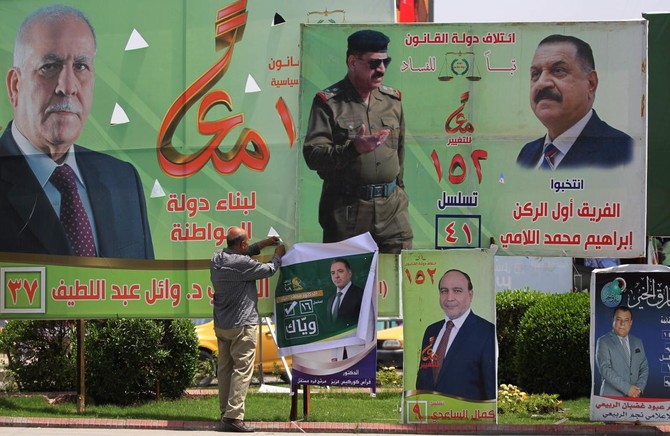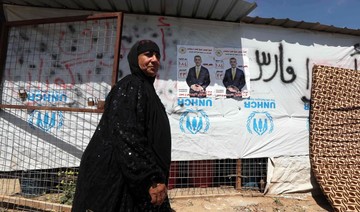BAGHDAD: Iraq’s leading clergyman, Grand Ayatollah Ali Al-Sistani, leader of the world’s Shiite community, has withdrawn his support for the country’s parliamentary elections to be held on May 12.
The cleric’s criticism of the “powerful (political) forces” that oppose Iraqi reforms has thrown the election into turmoil and leaves voters in a stand-off with political parties.
Voter turnout is likely to be significantly affected, politicians and political analysts told Arab News.
 Al-Sistani was one of the biggest supporters of political reforms that followed the US-led 2003 invasion which toppled Saddam’s regime.
Al-Sistani was one of the biggest supporters of political reforms that followed the US-led 2003 invasion which toppled Saddam’s regime.
“It is clear that the electoral path does not lead to satisfactory results,” he said on Friday. Al-Sistani called for changes in the electoral law to protect votes and “prevent foreign interference, whether financial or otherwise.”
A statement delivered by Sheikh Abdulmahdi Al-Karbalaie, one of Al-Sistani’s top aides, said: “It is certain that failures in past elections included the abuse of power by many who were elected and who occupied senior positions in the government. This can be seen in one way or another in this election.”
Al-Sistani is the highest informal religious authority in the country and wields major influence over the government in Baghdad and most Iraqis.
“Al-Sistani has withdrawn his support for the political process. He has stopped encouraging people to participate and has told them they can decide whatever they want by themselves,” Akram Al-Hakim, a Shiite candidate and former minister, told Arab News.
“He (Al-Sistani) is desperate to achieve any change, and that is why he broke the link with the political process. “He gave up the (parliamentary) elections.”
Political analysts said Al-Sistani’s statement opens the doors for corrupt political parties to win the battle against the people.
Most Shiite political parties taking part in the poll fear that Al-Sistani will criticize or exclude them or their lists from the elections.
“The sermon passed peacefully and the corrupt lists did not see any of its signs as a threat or a direct target,” an adviser to a leading Shiite candidate told Arab News on condition of anonymity.
“Regardless of the indirect signals (included in the statement) ... the political blocs are adept at using all this in their favor,” he said.













